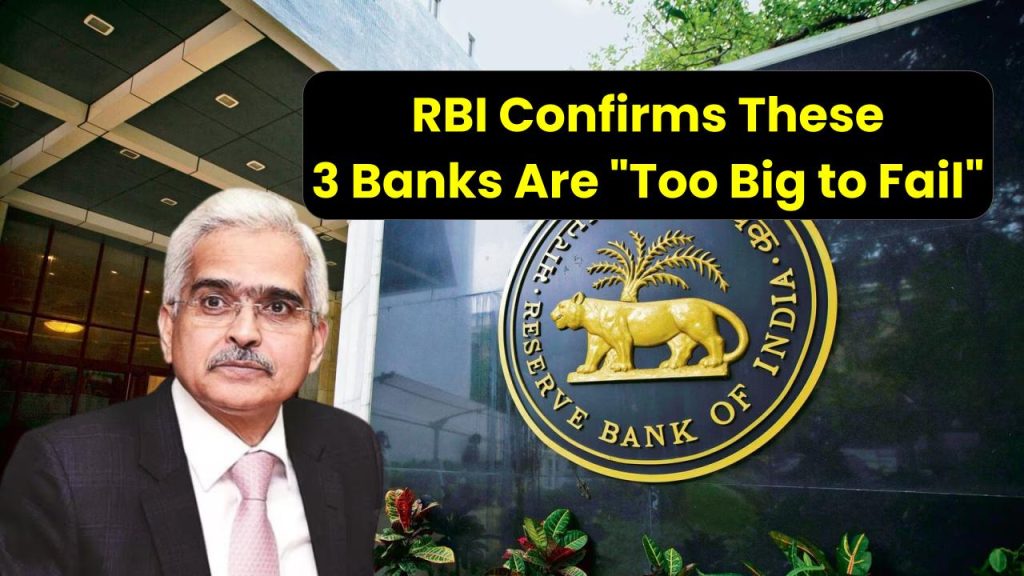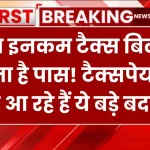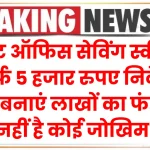
The Reserve Bank of India (RBI) has released its latest list of Domestic Systemically Important Banks (D-SIBs), confirming that three banks in India are officially “too big to fail.” These banks are State Bank of India (SBI), HDFC Bank, and ICICI Bank. According to the RBI, these banks play a critical role in India’s financial system, and their stability is essential for the economy.
If you’re wondering what this means for your money, the simple answer is: it’s safe. These banks are subject to stricter regulations and must maintain higher capital reserves to withstand financial crises.
RBI Confirms These 3 Banks Are “Too Big to Fail”
| Topic | Details |
|---|---|
| Banks Listed as D-SIBs | State Bank of India (SBI), HDFC Bank, ICICI Bank |
| Reason for Selection | Critical role in the economy, higher financial stability requirements |
| Capital Buffer Requirements | SBI: 0.80% extra capital, HDFC: 0.40%, ICICI: 0.20% |
| Customer Impact | Safer deposits, stricter regulatory oversight |
The Reserve Bank of India’s designation of SBI, HDFC Bank, and ICICI Bank as “too big to fail” institutions provides an extra layer of confidence for customers. These banks are essential to India’s financial ecosystem and are subject to stricter oversight, making them among the safest banks for deposits and investments.
While no institution is entirely risk-free, banking with a D-SIB ensures greater security, stability, and government support. Customers should still practice smart financial habits, but this announcement is great news for those banking with these institutions.
What Are “Too Big to Fail” Banks?
The term “too big to fail” refers to financial institutions that are so vital to the economy that their failure could trigger a severe financial crisis. If a bank of this size collapses, it could lead to job losses, economic instability, and loss of public confidence in the banking system.
To prevent such disasters, the RBI closely monitors these banks and requires them to keep extra capital buffers to cover risks. Even in extreme financial distress, the government is likely to intervene to protect these banks.
see also: Union Bank Personal Loan anging from Rs 50 thousand to Rs 15 lakh
Which Banks Are on RBI’s List?
The three banks classified as D-SIBs are:
- State Bank of India (SBI) – India’s largest public-sector bank with millions of customers and a vast network of branches.
- HDFC Bank – One of the leading private sector banks known for its digital banking services and strong retail customer base.
- ICICI Bank – Another major private-sector bank with international reach and diverse financial services.
Why Were These Banks Selected?
The RBI evaluates banks based on their size, interconnectedness, complexity, and substitutability. Essentially, if a bank’s failure could disrupt the financial system, it is added to the D-SIB list.
Capital Buffer Requirements for These Banks
To ensure stability, these banks must maintain additional capital as a safety net:
- State Bank of India (SBI): 0.80% additional Common Equity Tier 1 (CET1) capital
- HDFC Bank: 0.40% additional CET1 capital
- ICICI Bank: 0.20% additional CET1 capital
This means these banks hold more money in reserve compared to regular banks, reducing the risk of financial collapse.
How Does This Affect Customers?
For account holders and investors, this classification means:
- Your deposits are safer. The RBI and government will take steps to protect these banks.
- These banks are more stable due to higher capital requirements and regulatory oversight.
- There is reduced risk of bankruptcy, making them more reliable for savings, investments, and loans.
Comparing D-SIBs With Regular Banks
| Feature | D-SIB Banks (SBI, HDFC, ICICI) | Other Banks |
|---|---|---|
| Government Backing | Higher likelihood of intervention | Limited support |
| Capital Reserve Requirements | Higher | Lower |
| Risk of Failure | Very low | Moderate |
| Regulatory Oversight | Stricter | Less strict |
What Should Customers Do?
If you have an account in one of these banks, you can feel confident in their stability. However, it’s always good practice to:
- Diversify your savings across multiple banks.
- Use FDIC-insured deposits (Fixed Deposits, Savings Accounts) to maximize security.
- Stay updated with RBI announcements to track financial stability.
see also: Post Office FD Scheme You will get Rs 6,15,000 in just 5 years
RBI Confirms These 3 Banks Are “Too Big to Fail” FAQs
1. What happens if a D-SIB bank faces financial trouble?
If a D-SIB bank encounters financial issues, the RBI and government will intervene to prevent its failure. They might inject funds, merge it with another bank, or take other corrective actions.
2. Are my deposits in these banks 100% secure?
While no bank is completely risk-free, D-SIB banks are the safest option in India. Additionally, deposits up to ₹5 lakh per individual per bank are insured under Deposit Insurance and Credit Guarantee Corporation (DICGC).
3. Will more banks be added to the D-SIB list in the future?
Yes, the RBI reviews the list annually and could add more banks if they meet the criteria.
4. Do D-SIBs offer better interest rates?
Not necessarily. Their stability is higher, but interest rates depend on market conditions and bank policies.











